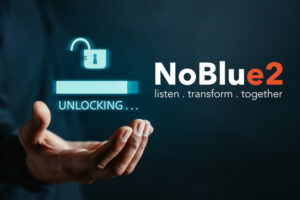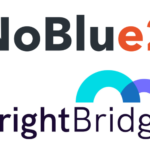If you’re looking to automate more processes and systems within your company, you will likely have considered enterprise resource planning (ERP) software and customer relationship management (CRM) software. But what are they and how do they compare? Which one should you choose? Or do you need both?
ERP vs. CRM
ERP and CRM systems have different primary purposes. However, they do complement each other and can work together to help you manage your business with greater efficiency.
CRM software manages your customer contacts and their interactions with your business. It stores information on your current customers as well as your prospects, to drive both retention and acquisition strategies. In automating the processes that make up the customer journey, a CRm platform consolidates customer relationship information, which can be used by your company’s marketing, sales and customer service teams.
CRM solutions were originally developed to manage the sales prospecting process. These contact management databases were used by the sales team to track customer interactions and sales. Systems were gradually enhanced to include marketing and customer service capabilities and reflected the shift to companies adopting more customer-centric approaches to business.
An ERP has a wider reach across your company, managing processes for the whole operation, again streamlining everything in a single database. It automates processes across finance, purchasing, stock management, sales, marketing, HR and more. Some ERP systems also include CRM capabilities.
ERP solutions were originally developed out of Materials Requirements Planning (MRP) software, which planned processes for manufacturers. It built on this, adding functionality for others areas of the business, but with the core being the finance and accounting side of a business.
Essentially, a CRM looks after the needs of your ‘front office’ – your customer relationships – while an ERP manages your ‘back office’. ERP and CRM systems can be integrated, so that information flows between the two. For example, an order received into the ERP system will update the CRM record that the customer in question has purchased that item.
Benefits of an ERP
The main benefit of an ERP is that it provides a single, real-time view of your organisation. It runs on one unified database, providing accurate information about your customers, sales, stock holding, finances and more. This improves your company’s reports, enabling you to see your business clearly and to make timely, well-informed business decisions.
Staff across your business can access these insights, producing relevant reports for their own departments. They can then use this operational and business data to implement changes that bring greater efficiency, help drive growth and improve financial indicators and profitability.
For the finance team, an ERP can dramatically speed up the financial close. By automating your financial reconciliation processes, you not only benefit from faster month-end closes, but you can also achieve greater accuracy in your reporting and analytics, for improved transparency. In comparison with spreadsheet accounting, an ERP is superior when it comes to accuracy, data entry, and manual tasks. All of this speeds up the time it takes for you to close your books each month, quarter or other financial accounting period.
On top of the financial aspects of an ERP, it also brings greater efficiency to areas such as purchasing, supply chain management, sales order processing and warehouse and stock management. It can help you improve productivity by automating processes and integrating workflows, saving your employees time and manual effort.
Benefits of a CRM
Again running as a unified database, CRM tools provide a centralised resource that gives a single view of your customer and prospect data.
They provide sales force automation, to manage and log interactions from your sales team, as well as automate actions. Reports and analytics help with management of the sales representative as well as giving greater insight into sales forecasting.
With marketing automation capabilities, a CRM enables marketing project management, including campaigns and customer engagement. It can help with lead generation, conversion rate optimisation and management of the customer lifecycle. It will manage your email contact database and integrate with social media and your website to show detailed visitor metrics.
If you are a business that runs a call centre or customer support team, then a CRM is also vital for managing customer support workflows, issuing and routing tickets and enquiries and allowing staff to log actions and outcomes. This ensures you provide great customer service, which engenders better customer experience levels and continued customer loyalty.
Analytics can break down your customer base to give visibility on the most profitable customers – and conversely those that cost you more to look after. You can also easily build upsell and cross-sell campaigns based on purchase history to generate revenue and improve customer relationships.
Do You Need an ERP or a CRM or Both?
Where some ERP systems might incorporate CRM capabilities, a CRM does not have the functionality that an ERP has. Although a CRM can access customer sales data like order history and invoice details, it doesn’t handle the transactional data itself. This originates from the ERP.
If you’re a growing company, you will likely want the functionality that provided by each system. In this case, you can either procure two separate systems and integrate them. Or you can seek a platform that incorporates both.
If you have started out with an entry-level accounting system or are just running a spreadsheet-based system, then the time will come when you want something more advanced, that offers you efficiency improvements through automating your workflows.
Equally, if your sales force is managing its customer outreach programmes via spreadsheets, customer databases or email systems, then as you grow you will find this too limiting.
Whether you seek to employ a CRM or an ERP first will possibly depend on the type of company you are. If you have a small number of high-worth clients, but complicated financial procedures, then you might seek to upgrade to an ERP first. On the other hand, if you have thousands of customers needing repeated or complex communication to ensure sales volume, but fairly straightforward financial needs, then you will likely want to invest in a CRM first.
Either way, as you grow, the time will eventually come when you seek the enhanced flow of information, improved visibility and process improvements that come with having both platforms.
Integrating CRM and ERP
Integrating the two systems – or implementing an ERP system that includes a CRM, like NetSuite CRM – can improve your internal decision-making, helping your business drive greater profitability.
Where properly integrated, the two systems can use the same data, rather than this existing separately in each – and possibly needing duplication of effort when it comes to updating information.
ERP systems that include a CRM are often less expensive than buying two separate systems. In part, this is due to the extra technical cost of ensuring that two systems will integrate seamlessly, to uphold the data integrity and ensure all data fields are properly matched.
Additionally, having a unified system means that all data is updated in real time, providing an accurate view of both the business and its customers without having to wait for the systems to synchronise or for updates to take place.
To discover if NetSuite ERP plus NetSuite CRM implementation gives you the 360-degree view of your customers you’re seeking, let NoBlue provide you with a free business consultation or tailored quote. Book an appointment now or contact us today.










